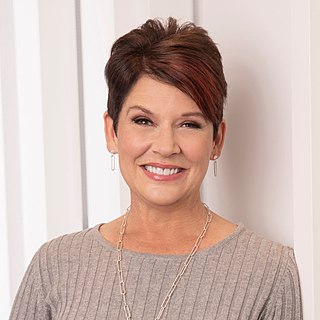A Quote by William Gibson
I think science fiction gives us a wonderful toolkit to disassemble and reexamine this kind of incomprehensible, constantly changing present that we live in, that we often live in quite uncomfortably.
Related Quotes
It had also been my belief since I started writing fiction that science fiction is never really about the future. When science fiction is old, you can only read it as being pretty much about the moment in which it was written. But it seemed to me that the toolkit that science fiction had given me when I started working had become the toolkit of a kind of literary naturalism that could be applied to an inherently incredible present.
I can think of very few science books I've read that I've called useful. What they've been is wonderful. They've actually made me feel that the world around me is a much fuller, much more wonderful, much more awesome place than I ever realized it was. That has been, for me, the wonder of science. That's why science fiction retains its compelling fascination for people. That's why the move of science fiction into biology is so intriguing. I think that science has got a wonderful story to tell.
Science fiction [is] the kind of writing that prepares us for the necessary mutations brought about in society from an ever changing technological world and as a result. The mainstream hasn’t excluded SF; the mainstream has excluded itself. No one told Jules Verne he was a science fiction writer, but he invented the 20th century.
Literary science fiction is a very, very narrow band of the publishing business. I love science fiction in more of a pop-culture sense. And by the way, the line between science fiction and reality has blurred a lot in my life doing deep ocean expeditions and working on actual space projects and so on. So I tend to be more fascinated by the reality of the science-fiction world in which we live.
How often are you worrying about the present moment? The present moment is usually all right. If you're worrying, you're either agonizing over the past which you should have forgotten long ago, or else you're apprehensive over the future which hasn't even come yet. We tend to skip over the present moment which is the only moment God gives any of us to live.
The main difficulty is finding an idea that really excites me. We live in an age when miracles are no longer miracles, and science and the future are losing their sense of mystery. For science fiction, or at least the type of science fiction I write, this development is almost fatal, but I'm still giving it all I've got.
I'd describe my inner life as constantly vigilant, always ready to flee or respond with violence. I've felt this way since I was a small child. Although it's often quite amusing, it's exhausting at times to live with myself, and when I'm tired and overwhelmed, I do become very depressed. If I'm unable to work for too long, I start questioning my purpose on this earth and whether or not I deserve to live. When I look at other people, I get the sense that they live with themselves much more gracefully.
There are certain kinds of people who write science fiction. I think a lot of us married late. A lot of us are mama's boys. I lived at home until I was 27. But most of the writers I know in any field, especially science fiction, grew up late. They're so interested in doing what they do and in their science, they don't think about other things.
Tomorrow and plans for tomorrow can have no significance at all unless you are in full contact with the reality of the present, since it is in the present and only in the present that you live. There is no other reality than present reality, so that, even if one were to live for endless ages, to live for the future would be to miss the point everlastingly.




































